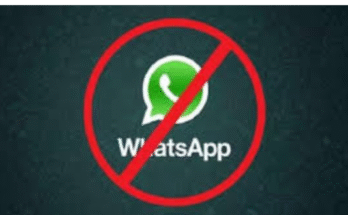Direct Messages on WhatsApp
WhatsApp, the widely popular messaging app, has become an essential tool for communication worldwide. One of the most commonly used features of the app is Direct Messaging (DM), which allows users to send private messages to individuals or groups. In this article, we will delve into the various aspects of direct messaging on WhatsApp, explore its functionality, and discuss how it has revolutionized communication in personal, social, and business contexts.
What is Direct Messaging on WhatsApp?
Direct messaging, often referred to as DMs, allows users to send private messages to one another. This form of communication on WhatsApp happens outside of group chats, meaning the conversation is limited to the sender and the recipient. DMs on WhatsApp are one-on-one exchanges, though the app also enables users to initiate group chats or broadcast messages to multiple contacts at once.
WhatsApp’s direct messaging service is simple and effective, relying on an internet connection for sending text, voice, images, videos, documents, and other media files. Since its creation, it has proven to be a fast and efficient communication tool for personal and professional purposes alike.
How Direct Messaging Works
To send a direct message on WhatsApp, users need to have the recipient’s phone number saved in their contacts. This is crucial for starting a conversation, as the app uses phone numbers as identifiers. Here’s how direct messaging works:
- Initiating a DM: Users can tap on the message icon at the bottom of the screen and search for the contact to which they want to send a message.
- Sending Messages: Once the contact is selected, users can type their message in the text box and press send. The recipient will receive the message in their inbox.
- Multimedia Messages: WhatsApp allows users to send not just text messages but multimedia content. This includes images, videos, audio files, documents, and even location details.
- End-to-End Encryption: WhatsApp uses end-to-end encryption for direct messages, ensuring that only the sender and the recipient can read the messages. This level of security is one of the app’s most appealing features, particularly for users concerned about privacy.
Features of WhatsApp Direct Messaging
WhatsApp’s direct messaging service offers a wide range of features to enhance the messaging experience. Some of the key features include:
- Text Formatting Options: WhatsApp allows users to format their text messages by applying bold, italics, strikethrough, and monospace formatting. This adds a personal touch to conversations and helps emphasize certain words or phrases.
- Voice Messages: One of the standout features of WhatsApp is its voice messaging capability. Instead of typing out long responses, users can simply press the microphone button and send a voice note. This is particularly useful when users are on the go or when they want to convey emotions that may be lost in text.
- Send Media Files: Users can share images, videos, GIFs, and documents in direct messages. WhatsApp also offers options to edit photos before sending, such as adding text, stickers, or doodles.
- Live Location Sharing: WhatsApp allows users to share their live location with others. This feature is handy for coordinating meetups or ensuring safety by informing someone of your whereabouts.
- Voice and Video Calls: Direct messaging on WhatsApp goes beyond just text and media. WhatsApp offers voice and video calling features that enable users to initiate calls from within the messaging screen. This feature is free and relies on an internet connection, making it a cost-effective alternative to traditional cellular calls.
- Archived Chats: If you want to keep a conversation out of sight but not delete it, WhatsApp offers an “Archive” feature. This hides the chat from the main screen but still keeps the messages available for future reference.
The Advantages of Direct Messaging on WhatsApp
WhatsApp’s direct messaging service has revolutionized how people communicate. Here are some of the key advantages:
- Instant Communication: One of the most significant benefits of WhatsApp is its ability to send and receive messages in real-time. Whether you’re across the street or across the globe, WhatsApp ensures that your messages reach recipients within seconds, allowing for quick exchanges.
- Cross-Platform Support: WhatsApp is available on multiple platforms, including Android, iOS, and web browsers. This means users can send direct messages from smartphones, tablets, and computers, ensuring they can communicate no matter what device they are using.
- No Cost for International Messaging: Unlike traditional SMS, which incurs fees for international messages, WhatsApp allows free communication between users worldwide, provided both users have an internet connection. This makes it an invaluable tool for staying connected with friends, family, and colleagues overseas.
- End-to-End Encryption: The security of direct messages is one of the reasons WhatsApp has gained popularity. WhatsApp’s end-to-end encryption ensures that only the sender and recipient can access the content of the messages. This prevents unauthorized access and ensures privacy.
- Easy Group Communication: While DMs are primarily for one-on-one conversations, WhatsApp also allows users to create groups where multiple contacts can communicate. This is ideal for family groups, work teams, or any situation where several people need to stay in touch. The convenience of managing both private and group chats in one app simplifies communication.
- User-Friendly Interface: WhatsApp is known for its clean, easy-to-use interface. Sending a direct message is a straightforward process, even for those who may not be tech-savvy. This ease of use has contributed to WhatsApp’s widespread adoption among users of all age groups.
Privacy and Security Concerns
Despite its many benefits, there are several privacy and security concerns when it comes to WhatsApp direct messaging. While the platform uses encryption to safeguard messages, it is still important for users to be cautious:
- Phishing Scams: Cybercriminals may use WhatsApp to attempt phishing scams. They may impersonate trusted contacts or companies to gain access to personal information. Users should always verify the identity of individuals before sharing sensitive details.
- Data Sharing with Facebook: Since WhatsApp is owned by Facebook (now Meta), there have been concerns over the sharing of user data between the two platforms. While WhatsApp claims to prioritize privacy, users should be aware of the data-sharing policies and adjust their privacy settings accordingly.
- Fake Profiles and Bots: WhatsApp is sometimes used to create fake profiles or automated bots that can spam users with unsolicited messages. The platform provides reporting features to block and report such accounts, but it remains a concern for users looking for secure communication.
- Backup Vulnerabilities: While WhatsApp messages are encrypted end-to-end, the backups users create in cloud storage may not have the same level of security. This means that if a user’s cloud account is compromised, their backed-up messages may be at risk.
WhatsApp Direct Messaging for Business Communication
WhatsApp has become a powerful tool for businesses looking to communicate directly with customers. It provides a more personal touch compared to emails or social media platforms. Some ways businesses use direct messaging on WhatsApp include:
- Customer Support: Many companies offer customer support through WhatsApp, where customers can directly message a representative to resolve issues. This creates a more interactive and timely customer service experience.
- Promotions and Marketing: Direct messaging on WhatsApp also allows businesses to send promotions, offers, and updates to customers. Companies can use WhatsApp to send personalized messages, making it an effective marketing tool.
- Appointment Scheduling: Businesses such as salons, clinics, and restaurants can use WhatsApp for direct messaging to schedule appointments and confirm bookings, streamlining their operations.
- Order Confirmation: Many e-commerce platforms use WhatsApp to confirm orders and provide customers with tracking information. This instant communication helps keep customers informed throughout their buying process.
Best Practices for Using Direct Messages on WhatsApp
To make the most of WhatsApp’s direct messaging service, here are some best practices to follow:
- Be Clear and Concise: Direct messaging is best suited for brief, to-the-point conversations. Be clear in your messages to avoid misunderstandings.
- Respect Privacy: Always respect the recipient’s privacy. If someone doesn’t respond to your message immediately, don’t keep sending follow-up messages, as this may come across as intrusive.
- Avoid Sharing Sensitive Information: While WhatsApp is encrypted, it’s still advisable to avoid sharing overly sensitive personal information through DMs. Use discretion when communicating online.
- Maintain Professionalism: If you’re using WhatsApp for business purposes, maintain professionalism in your direct messages. Avoid using overly casual language unless you have an established rapport with the recipient.
- Manage Notifications: WhatsApp allows users to mute chats or set custom notification preferences. Manage your notifications to avoid being overwhelmed by constant messages, especially in group chats.
Conclusion
Direct messaging on WhatsApp has revolutionized communication by offering a fast, secure, and easy way to stay in touch with others. With its numerous features, such as multimedia sharing, voice notes, and end-to-end encryption, WhatsApp has become an integral part of personal, social, and business communication. However, like any communication platform, users must be aware of the potential privacy risks and follow best practices to maintain a safe and effective messaging experience. As technology continues to evolve, WhatsApp’s direct messaging feature will likely continue to play a significant role in shaping the future of digital communication.



